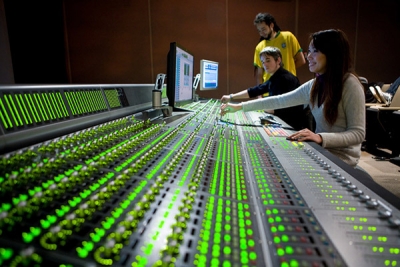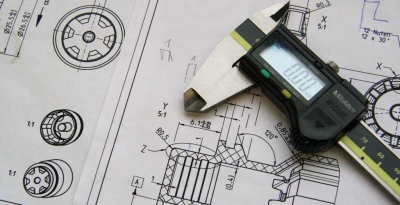
Did you know that the ominous piece of music that plays whenever a shark approaches the victims in the film "Jaws" was created by simply alternating the pattern of two notes "E" and "F. Forty-five years later, the soundtrack continues to be synonymous with approaching danger. That's the power of sound engineering.
Sound is an integral part of our lives, and over the years, it has become an important part of the movie going experience as well. And its the sound engineers that help filmmakers to use sound to create suspense, stir our emotions and eve get our adrenaline pumping The role of sound engineers is not just restricted to films they work in a variety of fields to record, synchronise, mix or reproduce music voices, or sound effects.
What is sound engineering?
Sound engineering is a branch of engineering that deals with the perception and presentation of sound Sound designing and mixing can be used across disciplines such as filmmaking, television production, theatre. live performance, video game development music recording and radio.
What is the scope?
Sound engineering opens up myriad career options, including as studio sound engineer, audio engineer, live sound engineer, studio designer, mixing engineer, music arranger, mastering engineer, audio post production dialogue and music editor, and location recordist.
Different branches of sound engineering
1. Research and Development The work of an audio engineer in the research and development sector involves enhancing the process of audio engineering by developing new equipment, technologies and techniques.
2. Monitor Sound Engineers: A Monitor Sound Engineer helps live performers by assisting them on audio and sound enhancement
3. Systems Engineers: Systems engineers assist the monitor sound engineers by taking care of AMPS, complex PA systems. speakers and other equipment.
4. Recording Engineers: Recording Engineers are the tune setters of an album. They perform duties of recording, editing and mixing sound using microphones, setting levels and sound manipulation techniques.
Where to study
- Film and Television Institute of India, Pune, and Satyajit Ray Film and Television Institute of India. Kolkata: Sound Recording and Sound Design - Three year postgraduate (PG) diploma
- Asian Academy of Film And Television, Noida: Diploma in Music Production
- Ramoji Academy of Film and Television, Hyderabad: Diploma in Sound Recording and Designing
- Annapuma College of Film and Media, Hyderabad: Master of Arts (MA) Sound Design Abroad
- Chalmers University of Technology, Sweden: Master of Science (M.Sc) Engineering in Sound and Vibration
- Georgia Institute of Technology, the U.S.: Bachelor of Science (B.S.) and MS. in Music Technology
- Lawrence institute of Technology, the US.: B.S. in Audio Engineering Technology
Picture Credit : Google









